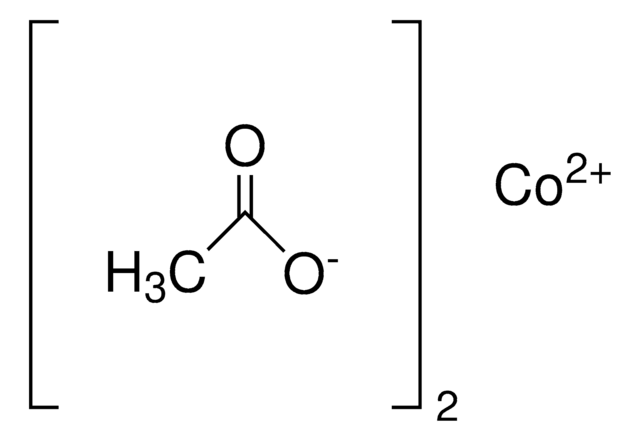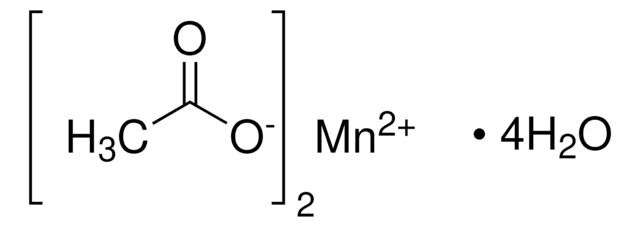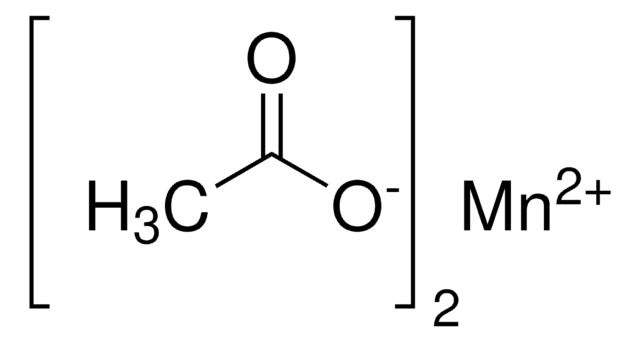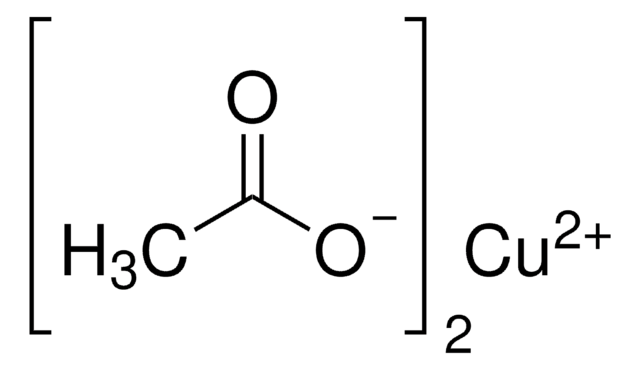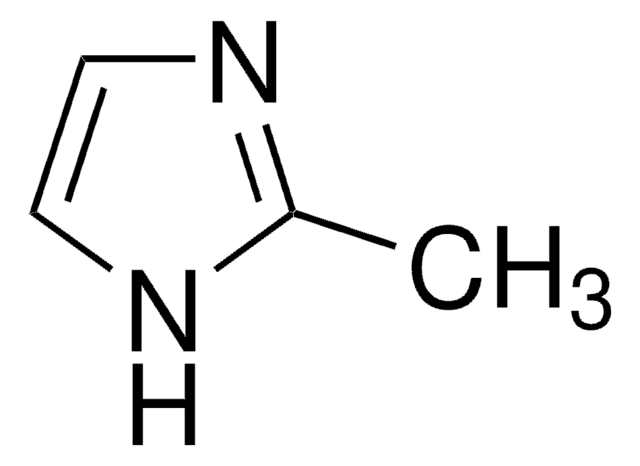437875
Cobalt(II) acetate tetrahydrate
99.999% trace metals basis
Synonym(s):
Cobaltous acetate tetrahydrate
About This Item
Recommended Products
assay
99.999% trace metals basis
form
powder and chunks
reaction suitability
core: cobalt
SMILES string
[H]O[H].[H]O[H].[H]O[H].[H]O[H].CC(=O)O[Co]OC(C)=O
InChI
1S/2C2H4O2.Co.4H2O/c2*1-2(3)4;;;;;/h2*1H3,(H,3,4);;4*1H2/q;;+2;;;;/p-2
InChI key
ZBYYWKJVSFHYJL-UHFFFAOYSA-L
Looking for similar products? Visit Product Comparison Guide
General description
Application
signalword
Danger
Hazard Classifications
Acute Tox. 4 Oral - Aquatic Acute 1 - Aquatic Chronic 1 - Carc. 1B Inhalation - Eye Irrit. 2 - Muta. 2 - Repr. 1B - Resp. Sens. 1 - Skin Sens. 1
Storage Class
6.1C - Combustible acute toxic Cat.3 / toxic compounds or compounds which causing chronic effects
wgk_germany
WGK 3
ppe
Eyeshields, Faceshields, Gloves, type P3 (EN 143) respirator cartridges
Choose from one of the most recent versions:
Already Own This Product?
Find documentation for the products that you have recently purchased in the Document Library.
Customers Also Viewed
Articles
From Form to Function: Molding Porous Materials in Three Dimensions by Colloidal Crystal Templating
Nanostructured Materials Through Ultrasonic Spray Pyrolysis
Advances in materials have often been led by the development of new synthetic methods that provide control over size, morphology and structure. The preparation of materials in a scalable and continuous manner is critical when development moves beyond lab-scale quantities.
Our team of scientists has experience in all areas of research including Life Science, Material Science, Chemical Synthesis, Chromatography, Analytical and many others.
Contact Technical Service